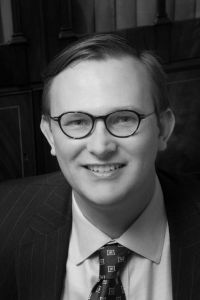
The following piece first appeared here at LewRockwell.com.
Every year in July, thousands of anxious men and women, in different states across America, take a bar exam in hopes that they will become licensed attorneys. Having memorized hundreds if not thousands of rules and counter-rules – also known as black letter law – these men and women come to the exam equipped with their pens, laptops, and government-issued forms of identification. Nothing is more remote from their minds than that the ideological currents that brought about this horrifying ritual were fundamentally statist and unquestionably bad for the American economy.
The bar exam is a barrier to entry, as are all forms of professional licensure. Today the federal government regulates thousands of occupations and excludes millions of capable workers from the workforce by means of expensive tests and certifications; likewise various state governments restrict upward mobility and economic progress by mandating that workers obtain costly degrees and undergo routinized assessments that have little to do with the practical, everyday dealings of the professional world.
As a practicing attorney, I can say with confidence that many paralegals I know can do the job of an attorney better than some attorneys, and that is because the practice of law is perfected not by abstract education but lived experience.
So why does our society require bar exams that bear little relation to the ability of a person to understand legal technicalities, manage case loads, and satisfy clients? The answer harkens back to the Progressive Era when elites used government strings and influence to prevent hardworking and entrepreneurial individuals from climbing the social ladder.
Lawyers were part of two important groups that Murray Rothbard blamed for spreading statism during the Progressive Era: the first was “a growing legion of educated (and often overeducated) intellectuals, technocrats, and the ‘helping professions’ who sought power, prestige, subsidies, contracts, cushy jobs from the welfare state, and restrictions of entry into their field via forms of licensing,” and the second was “groups of businessmen who, after failing to achieve monopoly power on the free market, turned to government – local, state, and federal – to gain it for them.”
The bar exam was merely one aspect of the growth of the legal system and its concomitant centralization in the early twentieth century. Bar associations began cropping up in the 1870s, but they were, at first, more like professional societies than state-sponsored machines. By 1900, all of that changed, and bar associations became a fraternity of elites opposed to any economic development that might threaten their social status.
The elites who formed the American Bar Association (ABA), concerned that smart and savvy yet poor and entrepreneurial men might gain control of the legal system, sought to establish a monopoly on the field by forbidding advertising, regulating the “unauthorized” practice of law, restricting legal fees to a designated minimum or maximum, and scaling back contingency fees. The elitist progressives pushing these reforms also forbade qualified women from joining their ranks.
The American Bar Association was far from the only body of elites generating this trend. State bars began to rise and spread, but only small percentages of lawyers in any given state were members. The elites were reaching to squeeze some justification out of their blatant discrimination and to strike a delicate balance between exclusivity on the one hand, and an appearance of propriety on the other. They made short shrift of the American Dream and began to require expensive degrees and education as a prerequisite for bar admission. It was at this time that American law schools proliferated and the American Association of Law Schools (AALS) was created to evaluate the quality of new law schools as well as to hold them to uniform standards.
At one time lawyers learned on the job; now law schools were tasked with training new lawyers, but the result was that lawyers’ real training was merely delayed until the date they could practice, and aspiring attorneys had to be wealthy enough to afford this delay if they wanted to practice at all.
Entrepreneurial forces attempted to fight back by establishing night schools to ensure a more competitive market, but the various bar associations, backed by the power of the government, simply dictated that law school was not enough: one had to first earn a college degree before entering law school if one were to be admitted to practice. Then two degrees were not enough: one had to pass a restructured, formalized bar exam as well. Read the rest of this entry »

